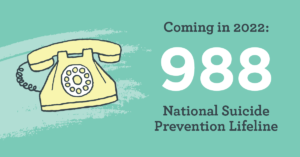How to Prevent Suicide Attempts From Over-the-Counter Medications

If you or someone in your care is experiencing a life-threatening emergency, call 911 immediately.
No parent wants to imagine their child is at risk of suicide. Nevertheless, all caregivers need to be aware of the risks of suicide, specifically, the dangers over-the-counter (OTC) medications can pose — and the difficult but crucial conversations that need to be had with children. As youth suicide attempts by medication poisoning increase at an alarming rate, educating children with purposeful conversations has never been more important.
Reports show that youth between ages six to 19 years accounted for half of all suicide-related OTC painkiller cases from 2000-2018. Young females are particularly at risk, as females of all ages accounted for 73% of cases.
By understanding the potential dangers of medications and learning how to have important preventative conversations, adult caregivers can better protect children from tragic circumstances.
Why is the number of suicide attempts with medications rising in children and teens?

Dr. Van Tran, Camber
Many factors have contributed to the rise of suicide attempts by children, and the challenges kids and teens normally face have been amplified. Today’s teens are facing a great mental health crisis, explains Dr. Van Tran, Medical Provider with Camber Children’s Mental Health (previously KVC Hospitals).
“Social media is one of the leading causes of the increase in suicide attempts,” Dr. Tran says. Social media’s profound influence on mental health has been well documented. Growing research indicates that higher social media use can increase a person’s risk of mental health symptoms like anxiety, isolation and hopelessness. According to one study, high levels of social media use over the span of four years was associated with increased depression among middle school and high school students.

“Several other circumstances can increase suicide risk such as bullying, parental pressure, peer pressure and exposure to trauma,” states Dr. Tran. According to the CDC, nearly one in five children ages 14 to 18 reported having seriously considered suicide in 2019. The COVID-19 pandemic has also brought about an uptick in youth mental health crises and CDC data shows a 31% increase in visits to hospital emergency departments for mental health-related crises, compared to before the pandemic, for children ages 12 to 17 years.
Being aware of these factors can help caregivers understand when children and teens might experience the greatest risk and how to implement strategies to prevent an overdose from over-the-counter medications.
Why are over-the-counter medications a significant danger?
When we think about an overdose, we commonly think about controlled substances, prescription medications, alcohol or illegal drugs. However, OTC medications like acetaminophen, antihistamines, or cold medications that are found in most homes or grocery stores can be a real threat.
“Over-the-counter medications are easily accessible,” says Dr. Tran. “Children and teens don’t have to see a doctor for a prescription, and they can easily get a large quantity of these medications.” While having a large stock of OTC medications on hand can prepare you for illness and help you manage the symptoms of health conditions on a day-to-day basis, these can also pose an unexpected danger.
Of particular danger are over-the-counter painkillers like acetaminophen, ibuprofen and aspirin. One study found more than 90% of cases of suicide by self-poisoning among young people involved pharmaceuticals. The most often used substances were over-the-counter painkillers and antidepressants which, combined, made up more than one-third of the suicide attempts involving poison. Even the acetaminophen many of us take for pain relief poses a serious threat.
What can caregivers do at home to proactively prevent suicide attempts with medications?
“Store medications in a locked safe place and dispose of unneeded pills,” Dr. Tran recommends. “Consider buying small amounts of medication for each incident and then disposing of the rest, so you don’t have any excess in the house.”
If you prefer to keep more medications on hand, limit access by keeping them somewhere that can be securely locked like a designated medicine cabinet or in a safe. Adults in the home can retrieve doses of medications as they are needed.
Talking about the appropriate uses of over-the-counter medications and their potential side effects is very helpful when educating children. Many times, if children understand the reason behind a medication, they will see that as its primary use rather than what friends or peers may suggest.
How can caregivers start conversations about responsible medication use?
“Provide an open forum and safe place for children to ask questions about the use of medications,” Dr. Tran suggests. “You can explain why you’re giving a medication when your child is sick and how it will help.”
These conversations about medication can also be a springboard for bringing up mental health. Parents can position themselves as an ally and safe resource for a child who is experiencing painful or scary feelings, or displaying symptoms indicating that there may be an underlying mental health need.
“Caregivers can make sure children know that if they or a friend are struggling, they don’t need to feel scared to talk about it,” Dr. Tran says. “It’s all about opening up without judgment and telling children that you’ll be there for them no matter what they want to tell you.”
Safe and healthy connections with adults and peers can help prevent suicide. The more youth feel connected to safe people, the more likely they are to express their feelings and have difficult conversations. Get comfortable asking children how they are doing or what they’re seeing among their friends. The biggest thing, according to Dr. Tran, is to withhold judgment and be supportive.
What warning signs might indicate a child is in emotional distress?
Suicide attempts are not limited to people with a diagnosed mental illness, and the CDC reports that 54% of people who died by suicide did not have a known mental health condition. Youth can face a range of social pressures, life stressors, relationship challenges, and more that can lead to dangerous circumstances. “Be on the lookout for subtle changes in a child’s mood and behavior and ask what’s going on,” Dr. Tran notes.
Often, changes from a child’s norm can indicate potential mental health challenges. Watch for these warning signs of mental distress:
- Changes in personal care habits, like not bathing or neglecting grooming
- Shifts in eating and sleeping habits: sleeping too little or too much, or eating too little or too much
- Disinterest in school and classes, including no longer completing homework, a drop in grades or poor school attendance
- Isolation from friends and family
- Withdrawing from normal interests and hobbies
Starting these conversations is as simple as saying, “Hey, how’s your day? What’s going on at school?” When your child isn’t acting like themselves, that can be a signal for caregivers to start talking.
How can you make sure a child in emotional distress gets the help they need?
 If you suspect an overdose or a child is experiencing a serious mental health crisis, call 911. You can also reach the National Suicide Prevention Lifeline at 1-800-273-TALK. In July 2022, the FCC is releasing a crisis line at the emergency number 988.
If you suspect an overdose or a child is experiencing a serious mental health crisis, call 911. You can also reach the National Suicide Prevention Lifeline at 1-800-273-TALK. In July 2022, the FCC is releasing a crisis line at the emergency number 988.
If you are concerned about any changes in your child’s behavior, make an appointment with your family physician or community mental health center. Unsure how to bring up mental health questions while in the office with your child? “You can call the office ahead of time and express your concerns so they know what to ask your child during the appointment,” Dr. Tran says.
If children don’t want to talk to their parents, look to other trusted adults. A licensed medical or mental health professional, youth group leader or pastor, school counselor, or another trusted community resource can be a safe place for conversation.
“At Camber, we can help families determine if their child needs to be in the hospital,” Dr. Tran explains. “If a child is in need of this level of care and is admitted to Camber, a multidisciplinary team including a licensed therapist and psychiatrist works directly with the child. The therapist contacts the child’s guardians regularly to review treatment progress updates and coping skills the child is learning while they’re at the hospital. Before a child leaves the hospital, guardians are provided with resources, a safety plan for prevention of further mental health crises, follow up appointments, and a therapist and psychiatrist in the community, when appropriate.”
The risks of over-the-counter medications are real. By educating yourself and children in your care on appropriate use and household safety, you can take an important step toward preventing suicide.
About Camber Children’s Mental Health (Previously KVC Hospitals)
For 30 years, Camber Children’s Mental Health (previously KVC Hospitals) has provided a healing space for over 37,000 youth admissions through its network of children’s mental health hospitals and residential treatment facilities. Camber uses a patient-centered approach that works to heal the whole family unit when a child is struggling with depression, anxiety, suicidal thoughts, the impacts of trauma, and other mental health needs. Call us at 913-890-7468 to learn more about services and find treatment near you.






